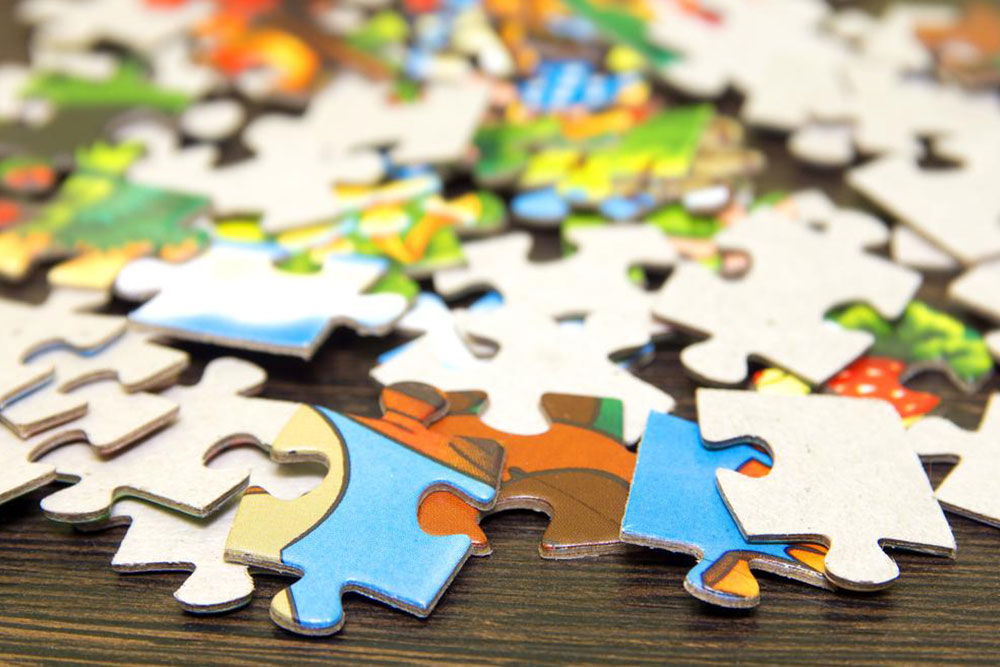Different types of puzzles
Puzzles are a fun way to boost logical thinking and strategic reasoning. The entire point of a puzzle is to solve and put the pieces back together, some which may be even time trials. Puzzles come in all shapes and sizes, some even based on a story or theme. They are a general form of entertainment, dating back to 1760 when John Spilsbury created the first ever.
He traced a map of the country on a sheet of wood and sawed the edges around all the states, to illustrate for his teaching class.

Puzzles can be categorized into a number of types, which have evolved over the years. Some of the common ones include construction puzzles, stick puzzles, transport puzzles, lock puzzles, folding puzzles, mechanical puzzles amongst many others.
A more specific classification includes:
Word Puzzles: Word puzzles which mainly focus on knowledge of language. The better command you have over a particular language, the easier it is to solve word puzzles. Popular word puzzles include your daily trivia’s, crossword puzzles and more.
Logic puzzles: These are puzzles which have a number of rules and tactics to be followed in order to solve the grid. Logic puzzles require strategic thinking and planning a few moves ahead. These puzzles are gaining popularity as they evolve in terms of difficulty and interest.
Pattern puzzles: Generally, not considered as your generic puzzle since they are more logical reasoning with a specific answer to every question. These puzzles when solved reveal a specific pattern which was the intended result.
Cryptic puzzles: Cryptic puzzles are challenging since the design and the mechanics of designing such puzzles are somewhat vague but will present a definite solution if solved properly. They might be vague, but also are the hardest to design and require a number of attempts to solve before the solution can be found.
In general puzzles are designed to entertain the person who is solving and there is one definite solution to it. The outcome of any puzzle is specific, there can be no two answers for the same puzzle since they are designed to provide one proper solution. Be it crosswords or trivia’s, the answer is specific though there might be a number of ways to come up with an answer.
Puzzles have been designed for the print as well as digital media, with its digital counterparts gaining more popularity.